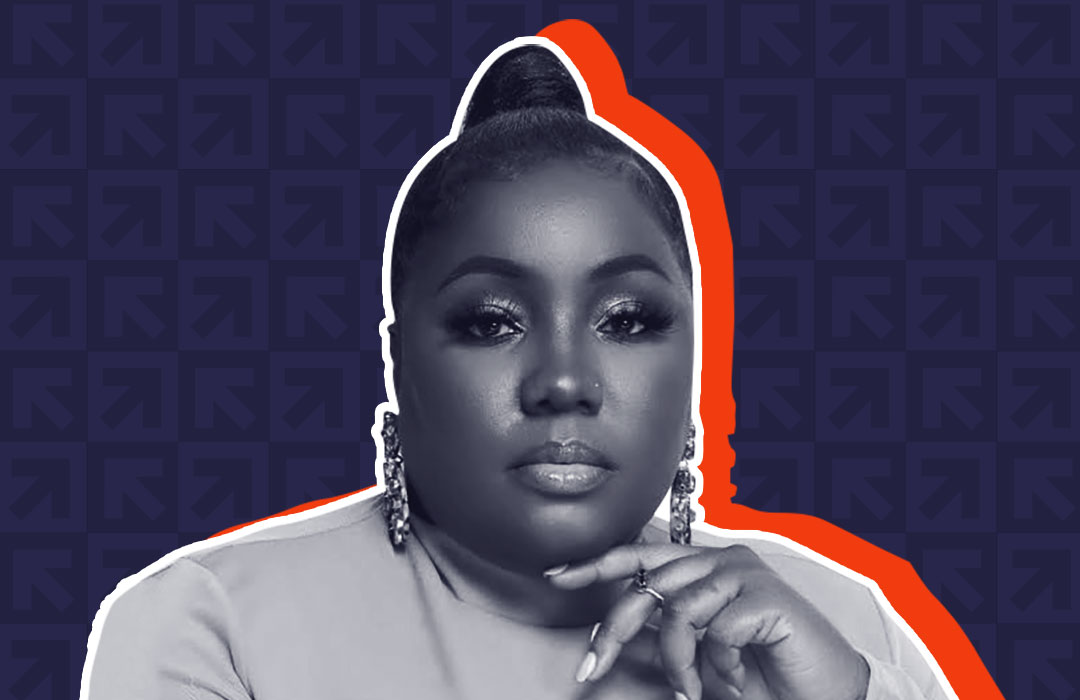Dasha Kennedy knows what it’s like to be on the receiving end of personal finance advice that makes no sense for your life.
In 2017, she was struggling to make ends meet as a single mother of two after a divorce that left her without a car and little additional financial support. The neighborhood where she lived in St. Louis was a food desert with no access to affordable, good-quality groceries. As a result, Kennedy found herself spending nearly $600 per month on fast food and ingredients from convenience stores with high markups.
She reached out to a financial advisor she’d connected with through her job as a default counselor, looking for resources or cost-cutting measures she could take in other parts of her budget. But instead of providing help, he scolded her for over-spending.
“I remember leaving and feeling so bad about it because he didn’t even ask me why I was spending that much money,” Kennedy, now 34, says. “I would have told him, ‘I'm spending more money on fast food because I have to make sure my family eats.’”
It wasn’t as though she was brand new to money, either — at that point, Kennedy had spent over a decade working at various accounting firms and banks. But despite her knowledge, she felt disrespected and unheard.
“I knew I couldn’t be the only one having this experience,” Kennedy says.
That was the day Kennedy decided to start a Facebook group dedicated to helping Black women learn about and discuss their own personal finances. She named it The Broke Black Girl — “because that’s really how I felt,” she adds — and within months, it had amassed over 20,000 members.
Now, The Broke Black Girl is not only on Facebook but also Twitter, Instagram and a stand-alone website — and Kennedy is behind it all, challenging personal finance norms while having frank conversations at the intersection of money, politics, and racial and gender equity with some 300,000 followers.
“So much of what we do, and so much of what happens to us, is centered around money,” Kennedy says.
When she first started working in the mailroom of an accounting firm at 19 years old, Kennedy says she didn’t know the first thing about personal finance. Born to teen parents who weren’t old enough to get jobs when she was a baby, she grew up learning about money basically at the same time as they did.
At that job, Kennedy says she grew curious about the topics she would overhear the firm’s accountants talking about. Whenever something piqued her interest, like an accountant discussing how they used money in a 401(k) to buy a foreclosure, she would directly ask them if they could explain the concept (or go home and look it up herself).
“I really developed a love for finance, so I wanted to dive more into the field,” Kennedy says.
Kennedy started college four different times in order to study finance, but she always had to stop because she couldn't afford the costs of enrollment and daycare. Even without a degree, she managed to move up and work as an accountant. She credits the knowledge she acquired from her patient colleagues as one of the main reasons for her ability to succeed as a personal finance expert today.
But while Kennedy’s story in many ways reflects the American ideals of self-made success, she is insistent that her experience should not be the expectation.
“There’s this harmful mentality that exists in the personal finance world: ‘Pull yourself up by the bootstraps,’” Kennedy says, referring to an expression often used to encourage people to accomplish tasks without any help. “The idea that we all have the same opportunities is just not true.”
One of the main goals of The Broke Black Girl is to provide “culturally relevant financial education.”
What this means, according to Kennedy, is that how someone approaches their money depends on their individual background and history. In order to avoid giving this type of one-size-fits-all, overly generalized advice that she sees many financial “gurus” espousing, Kennedy says she makes an effort to tailor the content she makes for The Broke Black Girl to her audience of primarily women of color.
That includes taking the history of racist policies that ultimately prevented, and in some cases still prevent, many Black Americans from building generational wealth into account. To briefly name a few of many: Jim Crow segregation, redlining (denying people housing, loans and insurance based on their race) and discriminatory hiring practices.
“Being a Black woman growing up in a Black community, being born to Black teenage parents — I can’t ignore that, because it’s shaped my whole experience with money,” Kennedy says.
Kennedy is particularly conscious of meeting people where they are. She avoids the sort of insider personal finance jargon that can turn off people who are just getting started managing their finances. Instead, she tries to speak frankly about the money she spends, critiques those who shame others for how they use their money, and shares advice on common real-life issues like dealing with money arguments in your marriage or building wealth as a family.
“It's easy to assume that someone knows what a budget is,” Kennedy says. “But it's even easier to just say: ‘Subtract your expenses from your income and make sure you're spending money that aligns with your goals.’”
On top of exclusionary language, Kennedy finds that so much of the content she sees already assumes its audience has the knowledge — and the salary — required to successfully take steps like investing in the stock market or quickly paying off large debts.
“That [advice] is not for someone coming from a family with generational debt and poverty.” Kennedy says.
With the platform she has, Kennedy says she wants to turn even more toward thinking about how personal finance, political activism and empowerment for women of color can all come together. One of her specific main goals for 2023 is to start more conversations and initiatives around how women of color can obtain more representation in C-suite roles, where they currently hold just 5% of all positions.
“I have to make sure my voice is heard, and I have to call out and give space for women to be heard, too,” Kennedy says. “It goes way beyond just what's coming in and out of my bank account.”






